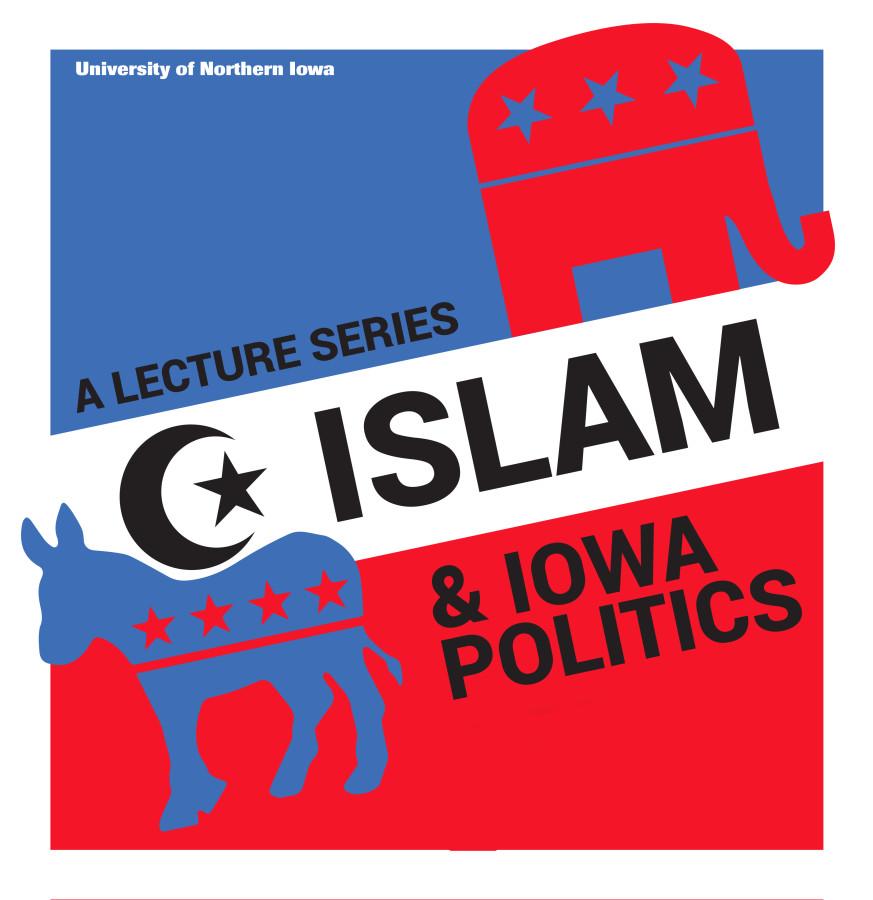Informing the voters of Iowa
Nov 5, 2015
“If we wish to pride ourselves on being ‘Iowa Nice,’ then we must also commit ourselves to understanding our neighbors,” said Cara Burnidge, assistant professor of religion. She said his in reference to better understanding and appreciating Islam here in America, and, more specifically, in the state of Iowa.
“Islam and Iowa Politics” is a lecture series comprised of three presentations put on by the department of philosophy and world religions at UNI. The first lecture was “Abraham, Moses and Jesus: The Heritage of the Bible in the Qur’an” given by assistant professor of religion, John Burnight. The second will be given by Burnidge, entitled, “Islam in Iowa: An American Story” and the last will be “‘We the People’: Trust in Public Discourse” given by William Clohessy, professor of religion.
“The idea for the series emerged from faculty in [the department] noticing perceptions about Islam that have received broad media attention in recent months as presidential candidates campaign in Iowa,” said Martha Reineke, professor of philosophy and world religions.
Reneike gave three major perceptions on Islam that were of particular concern to her and the department: candidates and supporters believing that Islam is a “pagan” religion standing at a distance from the “Judeo-Christian” religious tradition, potential voters believing Muslim immigration should be limited and presidential candidate Ben Carson’s lack of support towards the idea of a Muslim being president of the United States.
Carson is currently leading in the national polls with 29 percent of support from GOP voters, Donald Trump’s 23 percent is good for second plance according to the NBC News website and Wall Street Journal poll.
The first lecture, “Abraham, Moses and Jesus” was held on Friday, Oct. 30, led by Burnight. According to Burnight, the lecture focused on misconceptions Americans have about Islam, the relationship that it has to Christianity and Judaism and how characters from the Bible are portrayed in the Qur’an.
“They are viewed as true prophets and messengers of God,” said Burnight. “Many Americans are not aware of the fact that the God of the Qur’an, Allah, is viewed by Muslims as the same God described in the Bible.” Burnight stressed that “Allah” in Arabic means “The God” and should not be viewed as the name of a different god.
The second lecture, “Islam in Iowa” will be led by Burnidge on Thursday, Nov. 6 at 4 p.m. in Sabin Hall.
Burnidge will focus on Iowa’s role in the history of Islam in America. According to Burnidge, the first building in the United States to be specifically built as a mosque is the Mother Mosque of America, located in Cedar Rapids.
“[The mosque] is the oldest continuously operating mosque in the nation,” said Burnidge. “In this way, I will highlight how Iowa is an important example of the larger story of Islam in America.”
Reineke said that one of the main reasons for this lecture was due to potential voters feeling that Muslim immigration should be restricted.
“Muslims have been residing in Iowa for a long time,” Reineke said. “The people being polled apparently don’t realize that Muslims are neighbors and have been part of Iowa communities for a very long time.”
On Nov. 13 at 4 p.m. in Sabin Hall, Clohesy will give the lecture, “We the People.” The lecture will involve discussion on religion and its relation to the secular government and the Constitution.
“The United States is not a Christian country, but a secular one,” said Clohesy. “All religions are guaranteed freedom of speech; it is not an accident that free expression of religion is promised in the First Amendment along with freedom of speech, the press and assembly.”
Clohesy stressed that everyone needs to be aware of Islam’s place as a religion in the United States, especially after comments made by certain public figures like Carson.
According to Reineke, the three lectures approach these separate ideas with the intent to inform Iowa voters before the caucuses.
“Voters want to make decisions from a base of knowledge, not ignorance,” said Reineke.








